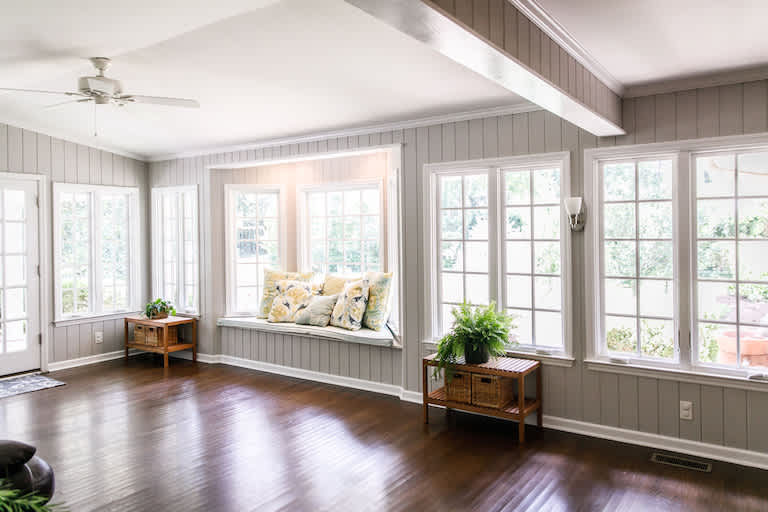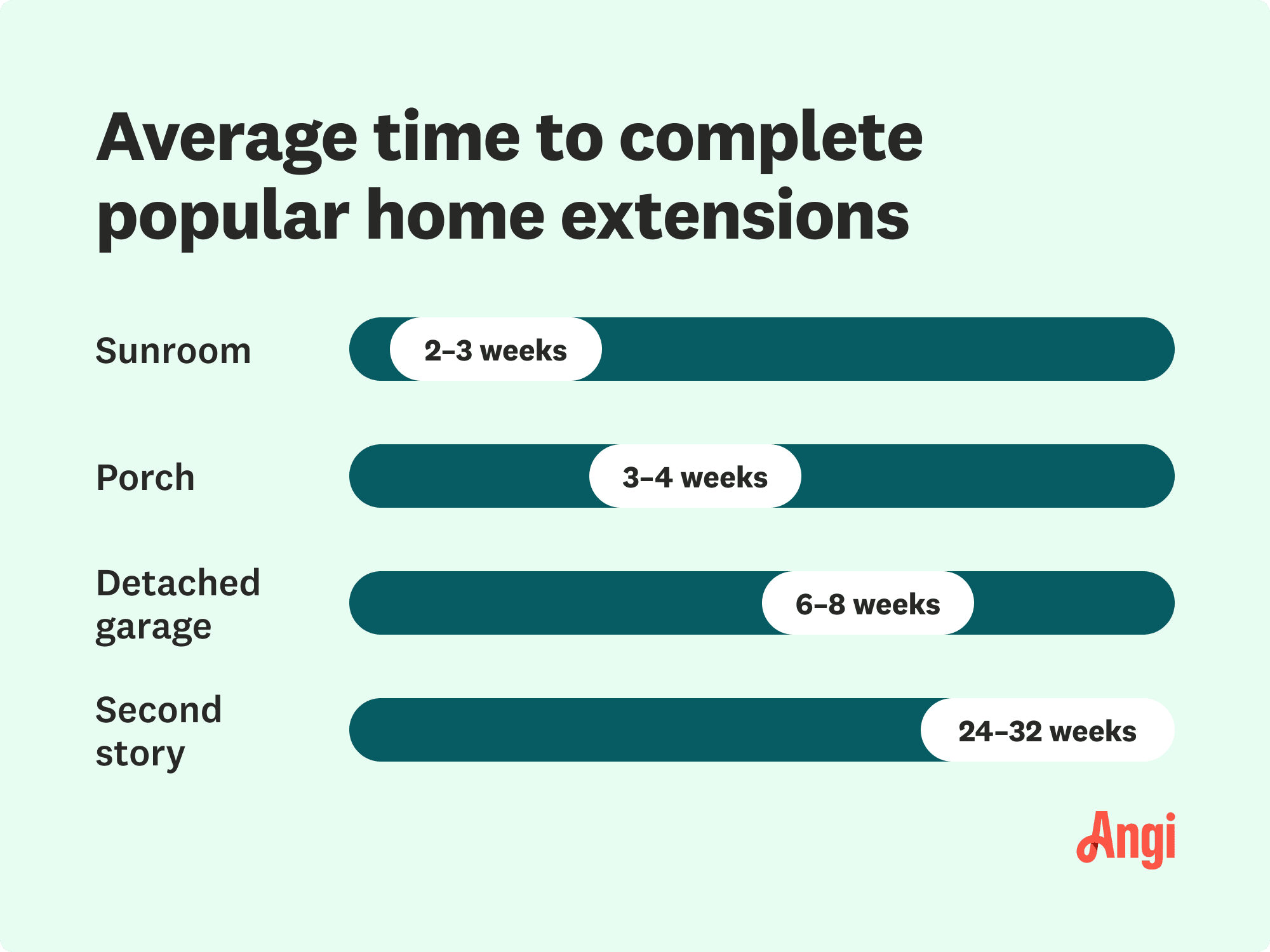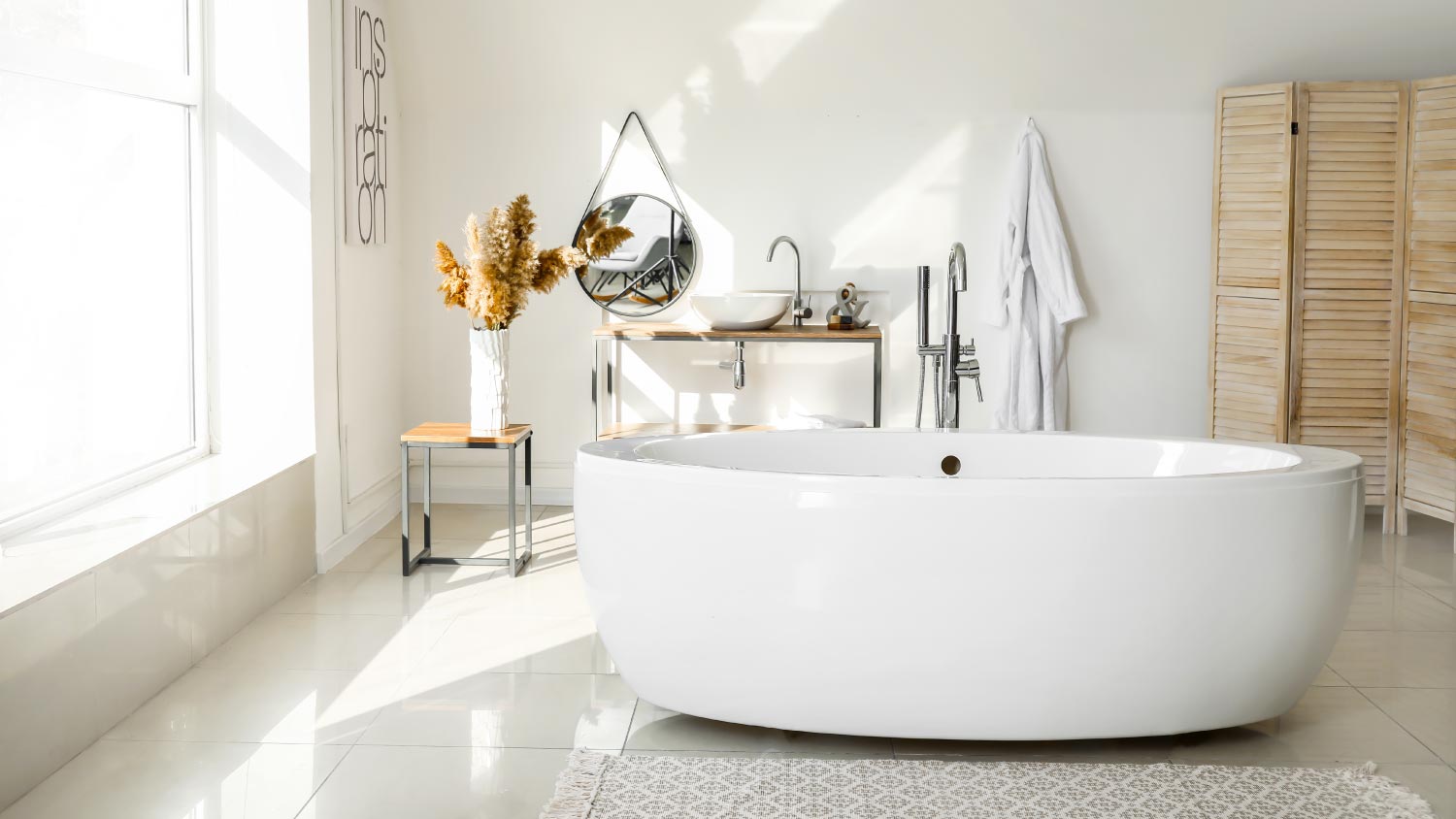
Remodeling your bathroom can add significant value to your home. Your bathroom remodel cost in Dallas, TX will depend on size, fixtures, materials, labor, and other factors.
A home addition costs an average of $102,994 in Los Angeles, California. Depending on the location, size, type, and materials, most homeowners spend between $59,907 and $156,853.


Los Angeles’s high cost of living means a home addition will cost around twice the national average.
Factors that affect home addition costs include addition size and type, materials used, and labor costs.
LA’s relatively large average lot size means many homeowners can opt for a bump-out addition at ground level rather than building up onto another story.
Homeowners in Los Angeles will need to budget extra for a home addition due to the city’s higher cost of living. The average cost of a home addition in Los Angeles ranges from $59,907 to $156,853, with the average homeowner paying around $102,994. We explore some of the factors that determine how much a home addition costs so you can budget correctly for this project.
The cost of a home addition can vary widely based on the size of the addition, what you’re going to use it for, what materials you choose, how much prep the site needs, and more. Once you’ve narrowed down your home addition ideas and decided what you want for your addition, you can begin to budget appropriately. Here are some of the things that affect how much you’ll pay for a home addition in Los Angeles, CA.
Home additions in Los Angeles cost between $160 and $400 per square foot if you’re building out and between $600 and $1000 per square foot if you’re building up. The cost to add a 10x10 room to a house costs an average of $25,000 if you build out and $80,000 if you build up.
Where in those ranges your total falls also depends on the complexity of the room and its finishes. For example, adding a bathroom will often cost more than a bedroom since it requires additional plumbing and electrical work.
Remember that if you add square footage to your home, the cost of your homeowners insurance will increase accordingly. Before you embark on this project, speak to your insurance company about expected costs.
Los Angeles has a relatively large average lot size at around 6,900 square feet and an average house size of around 1,575 square feet, which means many homeowners have the space on their lots to build out with a bump-out build instead of up onto another story.
| Addition Size (Sq. Ft.) | Bump-Out Build | Second Story Build |
|---|---|---|
| 60 | $9,600–$24,000 | $36,000–$60,000 |
| 80 | $12,800–$32,000 | $48,000–$80,000 |
| 100 | $16,000–$40,000 | $60,000–$100,000 |
| 150 | $24,000–$60,000 | $90,000–$150,000 |
| 200 | $32,000–$80,000 | $120,000–$200,000 |
| 300 | $48,000–$120,000 | $180,000–$300,000 |
| 400 | $64,000–$160,000 | $240,000–$400,000 |
As you can imagine, it takes many kinds of building materials to complete a custom home addition. Material prices vary widely, so your price could push closer to $156,853 if you choose luxury or high-end materials at each step of the way.
Framing Materials Cost:
| Framing Material | Average Cost per Sq. Ft. | Pros | Cons |
|---|---|---|---|
| Wood | $1–$5 | Cost-effective, easy to install | Fire risk, prone to pests and moisture problems |
| Steel | $2–$4 | Durable, fire-resistant | Complex installation, limits roof design |
Insulation Materials Cost:
| Insulation Material | Average Cost per Sq. Ft. | Pros | Cons |
|---|---|---|---|
| Blown-in | $0.50–$2.30 | Low-cost, fast installation | Prone to water damage, less durable |
| Fiberglass | $0.30–$1.50 | Fire-resistant, cost-effective | Lower R-value, easily damaged |
| Spray foam | $1.50–$4.90 | High R-value, resists pests and moisture | Higher cost, more flammable |
| Rockwool | $1.10–$3.10 | Durable, high R-value | Loose fibers can be a health risk, higher cost |
Roofing Materials Cost:
| Roofing Material | Average Cost per Sq. Ft. | Pros | Cons |
|---|---|---|---|
| Asphalt shingles | $1–$1.20 | Affordable, easy to install | Prone to granule loss, shorter lifespan |
| Metal | $5–$16 | Long lifespan, low-maintenance | Higher cost, difficult to repair |
| Slate | $10–$30 | Longest lifespan, high-end aesthetics | Very heavy, difficult to install/repair |
| Synthetic | $5–$12 | Durable, lightweight | Variable quality, may look engineered |
Flooring Materials Cost:
| Flooring Material | Average Cost per Sq. Ft. | Pros | Cons |
|---|---|---|---|
| Hardwood | $6–$12 | Long-lasting, many available options | Higher cost, prone to dents and scratches |
| Laminate | $1.30–$6 | Budget-friendly, easy to install | Difficult to repair, prone to water damage |
| Tile | $5–$40 | Variety of options, easy to clean | More expensive, complex installation |
| Carpet | $3.50–$11 | Retains warmth, soft to walk on | Difficult to keep clean absorbs odors |
Siding Materials Cost
| Siding Material | Average Cost per Sq. Ft. | Pros | Cons |
|---|---|---|---|
| Vinyl | $3–$12 | Budget-friendly, easy to install | Shorter lifespan, prone to impact damage |
| Fiber cement | $5–$14 | Extremely durable, long lifespan | Higher cost, difficult to repair |
| Wood | $2–$6 | Eco-friendly, wide range of styles | Prone to rot and pest damage, high-maintenance |

The cost to add on a room varies based on the type and size of the room you’re building. Rooms like kitchens and bathrooms require plumbing work that a bedroom doesn’t, while an unfinished attic home addition may not require electrical or HVAC work that a bedroom needs.
The cost per square foot for your home addition will vary based on utilities and the finishes required for how you plan on using the extra square footage. If you’re deciding between an ADU or a home addition, remember that regulations and codes are different for the two types of spaces, so check to see which makes more sense for your property.
| Addition Type | Average Cost Range |
|---|---|
| Attic | $80,000–$92,000 |
| Bathroom | $70,000–$80,500 |
| Bedroom | $125,000–$143,750 |
| Dining room | $60,000–$69,000 |
| Kitchen | $110,000–$126,500 |
| Laundry room | $16,000–$18,400 |
| Living room | $60,000–$69,000 |
| Mudroom | $24,000–$27,600 |
| Sunroom | $94,000–$108,000 |
| Detached garage | $52,800–$60,800 |
| In-law suite | $165,500–$190,400 |
| Second story | $350,000–$402,000 |
On average, site prep for a home addition costs between $3,000 and $10,000. You may not need any site prep in some cases, while other home addition projects may require grading land, demolishing concrete patios, removing trees, and other work that can add to your total.
To ensure your new addition is built to code, one of the first things on your home addition project checklist is to obtain a building permit from the City of Los Angeles Department of Building and Safety. Permit fees are based on the valuation of your project—a permit for an addition with the average value of $102,994 will cost around $950.
However, you may pay anywhere between $180 and $1,600, depending on the cost of your project. Unpermitted work can lead to penalty fees, citations, and removal of the finished work, so ensure you have all necessary permits before beginning construction.
Labor costs will make up about 40% to 60% of your total project cost, and hiring a general contractor or homebuilder in Los Angeles, CA, will cost about 10% to 20% of the total price. A qualified contractor or builder can keep your project on track, answer your questions about your home addition, hire and coordinate subcontractors, and ensure your new addition is exactly what you’d imagined.
Similar to building a house, building a home addition requires several different professionals to complete various tasks during the building process. From a structural engineer to ensure your plans are structurally sound and up to code to roofers who’ll make sure your addition is properly covered, here are some of the pros you may need to bring on to complete your addition project:
Interior painter cost: $2–$6 per sq. ft.
Roofer cost: $4–$11 per sq. ft.
Electrician cost: $50–$100 per hour
HVAC technician cost: $100–$250 per hour
Plumber cost: $45–$200 per hour
Carpenter cost: $75–$125 per hour
Structural engineer cost: $200–$1,500
Landscaper cost: $1,200–$6,200
An addition can add value to your home, with home addition projects providing a return on investment (ROI) between 20% and 50% or more, depending on the specifics of the addition. Some additions, like an expanded kitchen, additional bathroom, or primary suite, offer a higher ROI and make your home more competitive when it’s time to sell.
Home is the most important place on earth, which is why Angi has helped more than 150 million homeowners transform their houses into homes they adore. To help homeowners with their next project, Angi provides readers with the most accurate cost data and upholds strict editorial standards. We survey real Angi customers about their project costs to develop the pricing data you see, so you can make the best decisions for you and your home. We pair this data with research from reputable sources, including the U.S. Bureau of Labor Statistics, academic journals, market studies, and interviews with industry experts—all to ensure our prices reflect real-world projects.
Want to help us improve our cost data? Send us a recent project quote to [email protected]. Quotes and personal information will not be shared publicly.
From average costs to expert advice, get all the answers you need to get your job done.

Remodeling your bathroom can add significant value to your home. Your bathroom remodel cost in Dallas, TX will depend on size, fixtures, materials, labor, and other factors.

A bump-out addition is right for you if you want to add extra space to your home without adding a new room. Learn about the different bump-out addition costs.

Shower installation costs in Dallas, TX depend on size, style, and materials. No matter the budget, this guide can help you plan your project and even save a few bucks.

A handyperson is an ideal pro to remove and install your new bathroom vanity and sink. We have rounded up the best people who can get the job done.

An updated bathtub can give a bathroom a whole new look. Find out how much it costs to replace a bathtub in Columbus, OH, including prices by type and labor costs.

Whether you’re renovating or building a new bathtub, learn the standard bathtub sizes and styles to choose from to create a relaxing and functional space.